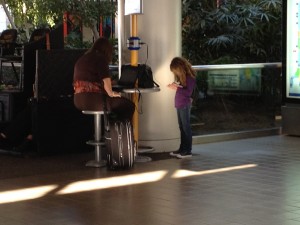 Today I’m over at the Paranormal Unbound blog, geeking out with sister scientist A.J. Larrieu over the world in my Covenant of Thorns series. She interviewed me and asked me some really great, insightful questions about my version of Faerie. She got me thinking about my early ideas for this series and how I got to the world I did. Very fun stuff!
Today I’m over at the Paranormal Unbound blog, geeking out with sister scientist A.J. Larrieu over the world in my Covenant of Thorns series. She interviewed me and asked me some really great, insightful questions about my version of Faerie. She got me thinking about my early ideas for this series and how I got to the world I did. Very fun stuff!
Category: Blog
Easy Steps to Polish That Draft!
 I’m over at the Rocky Mountain Fiction Writers blog today with advice for post-NaNoWriMo! I’m talking about my final short list to polish a manuscript before I send it to my editor. And also revealing my secret writer shames.
I’m over at the Rocky Mountain Fiction Writers blog today with advice for post-NaNoWriMo! I’m talking about my final short list to polish a manuscript before I send it to my editor. And also revealing my secret writer shames.
Season of Seduction Guest Blog
 I’m over at Romance with Flavor today, talking about the Season of Seduction anthology and the original title of Five Golden Rings.
I’m over at Romance with Flavor today, talking about the Season of Seduction anthology and the original title of Five Golden Rings.
Good Friends, Great Times and Arbitrary Endings.
 This weekend, my local RWA chapter, LERA, had our biannual conference. Two of our guests were Jennifer Enderlin, editor for the fabulous Darynda Jones at St. Martins, and NYT Bestselling author Deanna Raybourn. On Friday, Darynda and our two conference organizers, Tammy Baumann and Kari Bovee, made the trip up to Santa Fe. We did lunch and shopping and I got to play tour guide. Such a fun day for me!
This weekend, my local RWA chapter, LERA, had our biannual conference. Two of our guests were Jennifer Enderlin, editor for the fabulous Darynda Jones at St. Martins, and NYT Bestselling author Deanna Raybourn. On Friday, Darynda and our two conference organizers, Tammy Baumann and Kari Bovee, made the trip up to Santa Fe. We did lunch and shopping and I got to play tour guide. Such a fun day for me!
You can read more about it, and about what the most difficult part of the story is for me, over at Word Whores today.
YES Party!
 The Romance Reviews is having their Year-End Splash party and my Q&A is featured today! Head on over for a chance to win a copy of Five Golden Rings!
The Romance Reviews is having their Year-End Splash party and my Q&A is featured today! Head on over for a chance to win a copy of Five Golden Rings!
Falling in Love with the Book Boyfriend
 I’m over at the Contemporary Romance Cafe today, talking about book boyfriends. What? You know you have one. Or ten.
I’m over at the Contemporary Romance Cafe today, talking about book boyfriends. What? You know you have one. Or ten.
At What Point Do You Dig In to Protect Your Writing Process?
 A shot from Los Angeles last week and lunch with the delightful Lynda Ryba (@fishwithsticks). She’s going to be helping out with my Facebook Author Page, so we should see VAST improvements in that! (Really, it couldn’t get worse…)
A shot from Los Angeles last week and lunch with the delightful Lynda Ryba (@fishwithsticks). She’s going to be helping out with my Facebook Author Page, so we should see VAST improvements in that! (Really, it couldn’t get worse…)
What with it being NaNoWriMo (National Novel Writing Month, if you live under a rock – basically you commit to writing 50,000 new words during November), I’ve been thinking a lot about the writing process. Quite a few people wanted me to participate in NaNoWriMo. I could, because I’m seriously drafting book 3 in Covenant of Thorns right now. (I think it will be called Rogue’s Paradise.) I’m almost 20K into it and will almost certainly write at least 50K during this month. And I’d like to be supportive – I really would. Some of the newbie writers in my local chapter are doing it and I can see it would be helpful of me to join in. I like being supportive that way.
Except I said no.
Why? Because I *have* to turn in this book – complete and polished – by December 31, according to my contract. Worse, my editor is going on this long trip to New Zealand (yes, we hate her) and really wants the manuscript by December 25, so she can take it with her. Really a week doesn’t make that much difference, but it makes the deadline ever so slightly tighter. I cannot miss this deadline.
But Jeffe, you say – isn’t that all the more reason to do NaNo, to crank on getting those words down?
See, it’s really not.
Over the past several years, I’ve put a lot of effort and concentration into learning and refining my writing process. I say “learning” because I really believe we all have an organic process that we have to discover and love. It’s rough to go against that. I’ve now written six novels and novellas according to the method I’m using now. I know how much I can do each day (right now, about 2,250 words in 2-3 hours) and how long it will take me to complete the draft and then to revise. Being able to reliably create on a schedule is crucial for being a professional writer. This process is delivering for me. That makes it precious.
Which means I’m not going to mess with it.
No way.
Call me superstitious, but I’m not changing a thing.
I’m feeling much the same about workshops and classes. Now, I’m a huge believer in continuing education, lifelong learning – all that stuff. I was the girl in college who took 21 credits every semester, just because there were so many interesting classes to take. That said, I don’t have a writing degree of any sort – no English major, no MFA. I’ve taken tons of writing workshops, etc., over the years, but for the time being, I’m feeling like I want to stay away from them.
This isn’t the hip thing to say these days. Particularly not in the romance-writing community. (In fact, I don’t recall seeing this perspective much at all in the literary community. Those writers are much more apt to be protective of their process and to be vocal about it.) People love to point out when established writers come to workshops. They say things like “I’m never done learning!” and “not taking workshops can lead to stagnation.”
In fact, someone said that last to me just the other day. I threw the question out to Twitter (of course). I framed the question carefully, asking if any of the writers – especially well-established ones – found themselves staying away from classes and workshops, to protect their method. I tried to phrase it to weed out the happy “I love to take classes!” answers. Even so, I still received those responses.
@jeffekennedy Yes. I get very “I’ll do what I want!!!” about it. I always hated writing for school.
— Victoria Dahl (@VictoriaDahl) November 3, 2013
and
@jeffekennedy Definitely. It’s taken me a long time to get my process right, and I’m not messing with it now after 20 books!
— Zoe Archer (@Zoe_Archer) November 3, 2013
Another author, who preferred to remain anonymous, told me about an experience early in her writing career about “you can’t do that” that stopped her flat. She didn’t write for almost a year.
I think if I cast my net wider, I’d hear more of this kind of feedback. Because it sounds better to be enthusiastic about learning and growing, those writers who feel protective of their process might be less likely to speak up. But, I think it’s an important point – and speaks to the gal who said that not learning could lead to stagnation, a very common view – to remember that growing isn’t necessarily derived from taking workshops. There are thousands of ways to learn and grow as a writer, not the least of which is reading!
It’s certainly a fine line to walk. And it’s not that I think my process or my art is perfect. I do feel, however, that it’s working for me. I’m continuing to improve as a writer and that’s important to me.
More, I’m protective of it.
Setting and World-Building – Keep It Concise!
 I’m over at Word Whores today, discussing this great scene and talking about setting.
I’m over at Word Whores today, discussing this great scene and talking about setting.
Otter Delight
 I just returned from a conference for the Day Job that took place in Long Beach, California. The highlight was the private event at the Aquarium of the Pacific. We arrived at 7 and were able to tour all the exhibits with just our group – and have drinks at the same time! Then we had dinner with a view of an enormous, floor-to-ceiling tank. Just extraordinary.
I just returned from a conference for the Day Job that took place in Long Beach, California. The highlight was the private event at the Aquarium of the Pacific. We arrived at 7 and were able to tour all the exhibits with just our group – and have drinks at the same time! Then we had dinner with a view of an enormous, floor-to-ceiling tank. Just extraordinary.
 The jellyfish exhibits were just excellent. In the one below, the beating of the jellyfish’s cilia were highlighted, giving this super cool neon effect.
The jellyfish exhibits were just excellent. In the one below, the beating of the jellyfish’s cilia were highlighted, giving this super cool neon effect.
Also, there were Garden Eels! They plant their tails in the sand and pretend to be grass, letting their heads wave in the current, mouths ready to catch hapless fish passers-by. But possibly the very best part was the otter exhibit. Beautifully designed, the tank puts the otters right at eye level. And the lack of crowds let me get this great sequence to start your weekend off right.
But possibly the very best part was the otter exhibit. Beautifully designed, the tank puts the otters right at eye level. And the lack of crowds let me get this great sequence to start your weekend off right.
You’re welcome.
Enticing Villains, Bland Heroes and the Lure of the Bad Boy
 I’m over at Word Whores this morning, talking about whether villains can be protagonists. And yes, about Bad Boys.
I’m over at Word Whores this morning, talking about whether villains can be protagonists. And yes, about Bad Boys.